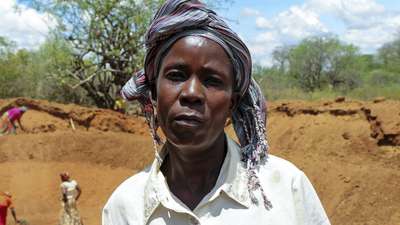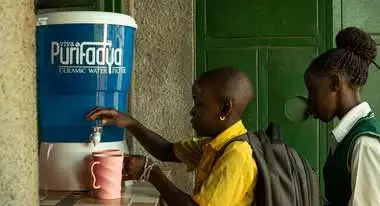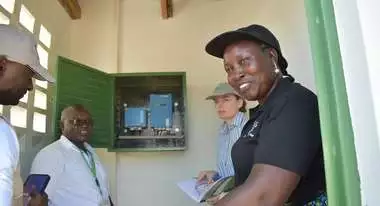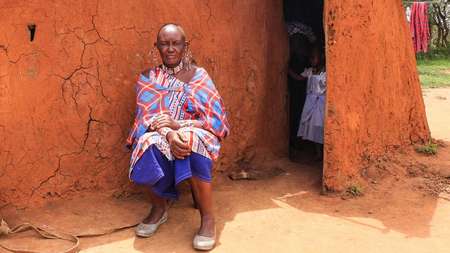
New Life in a Changing Climate
Traditional cattle herders are suddenly supposed to become farmers? They are expected to cultivate land and get plants to grow in barren soil? The Maasai in southern Kenya are rising to meet this challenge.
Only a few years ago, Esther spent every day on the move in the open air. She wandered through the Kajiado County semi-desert with her cows and family, always on the lookout for lush grass, the best feed for her animals. She could not imagine a different life.
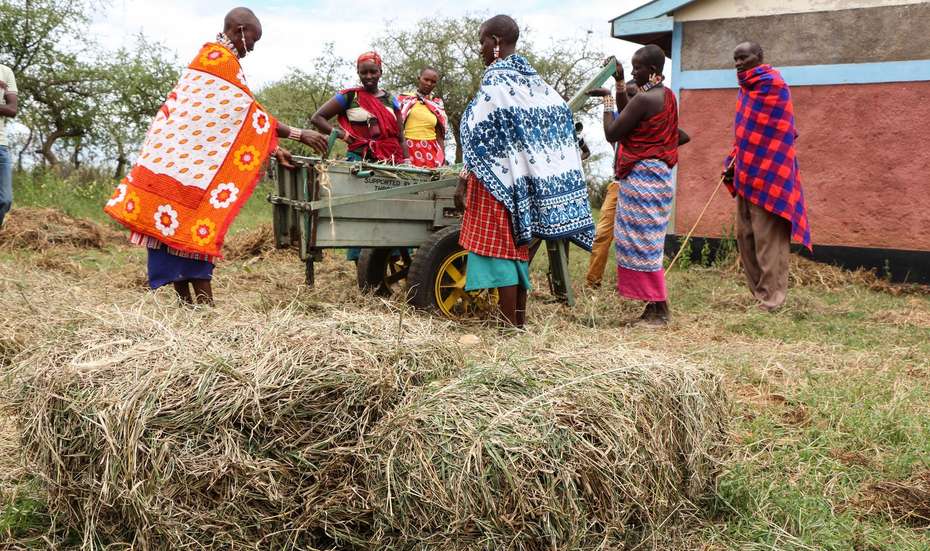
Animals Dying During Drought
“But it was no longer working,” Esther reminisces. Her way of life, like that of many Maasai in the area, fell apart. Due to climate change, long droughts occurred time and time again. The nomads’ animals could no longer find the grass and water they needed. Cows, goats and sheep died. Without their meat and milk, the families had neither money nor food.
With the support of Welthungerhilfe, their partner organisation Neighbours Initiative Alliance (NIA) and the government of Kenya, Esther and other Maasai were able to change their lifestyle. They learned to live with the effects of climate change taking place in their home. The government of Kenya allocated land to the nomad families. Welthungerhilfe and its partners help the cattle herders utilise their land as well as possible. That means cultivating nutritious feed, conserving it and using it during droughts.
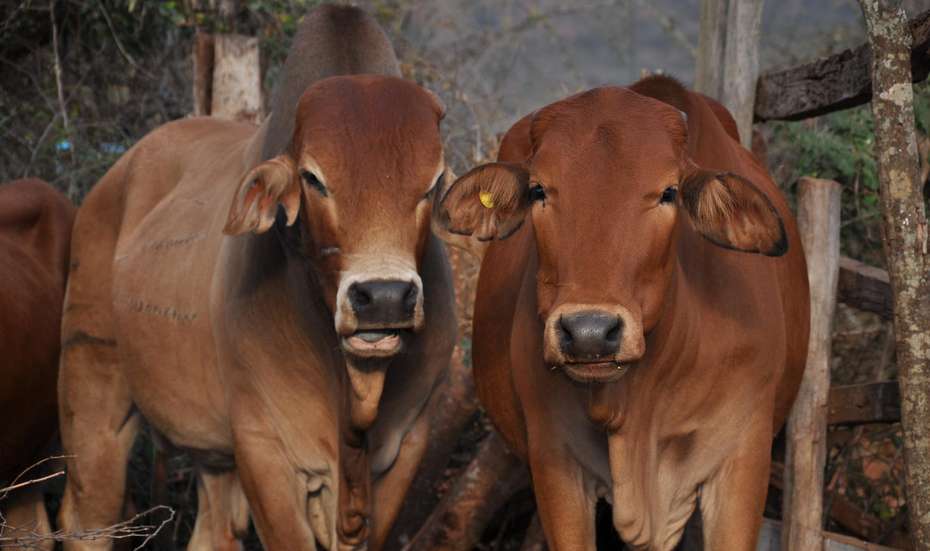
Storing Grain in the Community Barn
Esther, for example, now owns a plot of land, on which she harvests hay in particular. She packs it into bales, which she then stores in the community barn. It can be stored there safely until the livestock needs it. All of the animals in Esther’s herd survived the most recent drought. They give milk on a daily basis. Esther sells whatever the family does not use itself. The new barn is filled with plenty of hay. “We even sell the hay to other farmers now,” she says. With the additional income, she can now do something that was impossible for years: Esther can send her children to school.
Esther was able to defy climate change because she completely changed her life. She and others who have dared to take this step are proud of their success. They set an example for the ones that have not yet risen to meet this challenge.
How Welthungerhilfe Supports People in Kenia
- Educational sessions on: Hygiene, marketing and business management, animal health, saving rainwater
- Distributing resilient seeds and agricultural tools
- Supporting the construction of barns for hay




